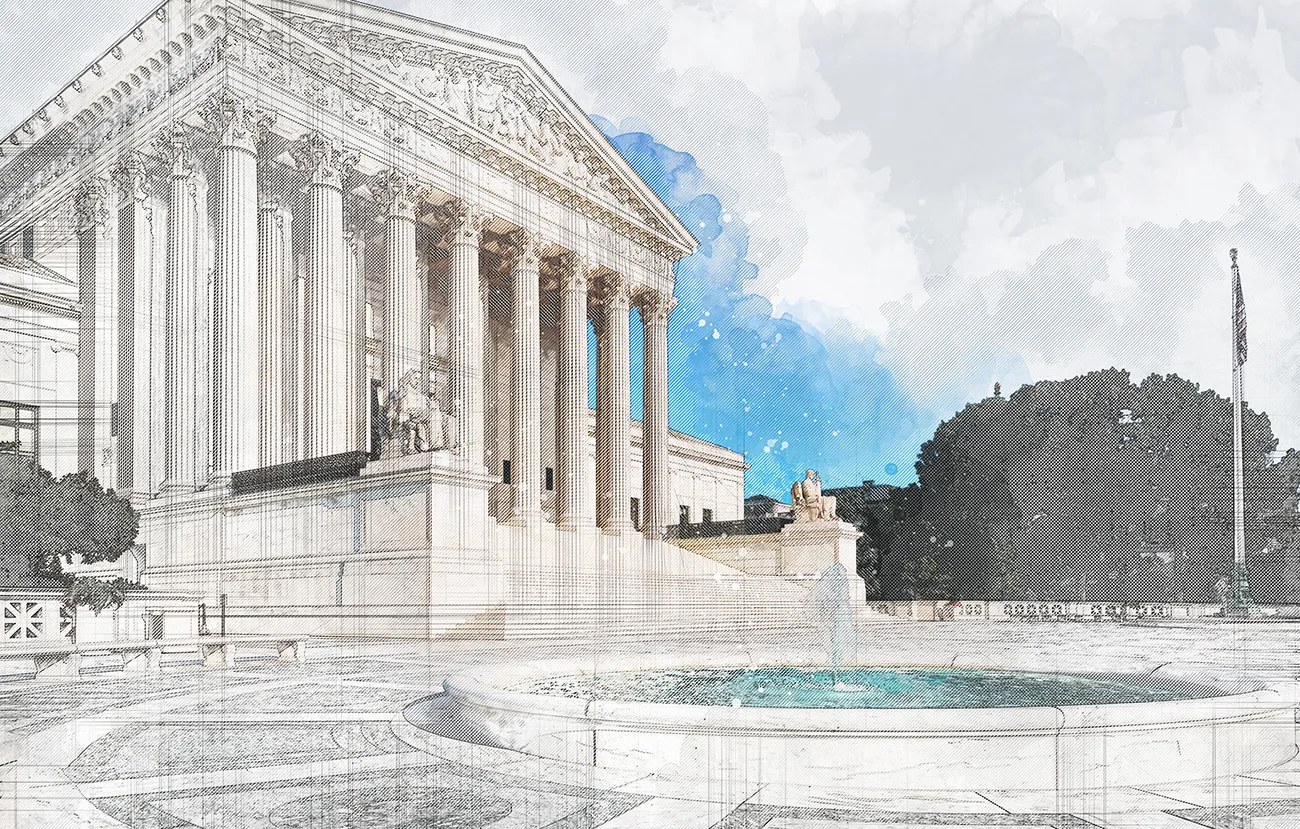Online Speech in the Supreme Court

This Monday, February 26, 2024, the United States Supreme Court will hear oral argument in two cases — Moody v. NetChoice & CCIA and NetChoice & CCIA v. Paxton — both of which focus on free speech and moderating content online. Both of these cases challenge specific state laws — Moody challenging Florida SB 7072 and Paxton challenging Texas HB 20 — arguing that, if they were to become law, they would drastically alter the digital landscape and the amount of control private companies have over what they can and cannot publish online, harming free expression and user trust and safety.
This post serves as a primer to Monday’s oral arguments, summarizing the timeline of both cases, the legislation at the center of the cases, and what is at stake. On Monday, the arguments can be listened to live here starting at 10am EST, and they are expected to go for several hours.
Moody v. NetChoice & CCIA
The Florida bill, SB 7072, was enacted in May 2021 and signed by Florida Governor Ron DeSantis. Shortly afterwards, CCIA and NetChoice filed suit, arguing that the bill was unconstitutional, including under the First Amendment, and was preempted by Section 230. Following that, in June 2021 a federal district court judge blocked the law, finding that it infringed upon First Amendment rights, and in May 2022 a panel of federal judges for the 11th Circuit Court of Appeals confirmed that decision. In September 2022, Florida petitioned the Supreme Court to hear the case and in October CCIA and NetChoice also petitioned the Court for the same, given a few provisions the court did not consider. (The former was granted, which is why the caption is flipped.) In January 2023, the Supreme Court invited the Solicitor General (SG) to file a brief, which in August of 2023 the SG responded, agreeing that the case merited Supreme Court review. Finally, in September 2023, the Supreme Court agreed to hear the case.
SB 7072 was borne from incorrect perceptions that certain companies are silencing, “censoring”, or “shadowbanning” certain voices. It was drafted with the intent to regulate internet companies that remove or limit dangerous material from their websites (such as hate speech, violence, or any other content against their terms of service) to ensure Florida citizens are “afforded control over their personal information related to social media platforms” and protected “from inconsistent and unfair actions by social media platforms.” However, the proposal violates many tenets of free speech rights, as well as Section 230, which support the operation of businesses online.
Disruptive Competition Project contributors Alyssa Doom and Matt Schruers, President and CEO of CCIA, examined the bill, noting its many deficiencies. Doom pointed out the numerous problems present in the bill and others like it, outlining how it could damage Florida by disincentivizing tech companies from operating in Florida and creating an environment ripe for frivolous lawsuits. Doom also noted that the bill’s language is broad enough that it could apply to companies not typically considered “social media platforms.” Additionally, shortly after the bill’s release, lawmakers quickly amended the bill before its passage as they realized it could be applied to a certain company with a mouse mascot that brings enormous amounts of business to the state. Schruers discussed this last-minute change, noting the wording was designed to exempt any company that “owns a large theme park or entertainment complex” so as to avoid causing problems with Disney. However, this carve-out for Disney only shows how ubiquitous content moderation is in the digital economy. Practically all sites enable some form of user comments, reviews, feedback, or some form of content display practices; an innumerable number of businesses would be regulated by these types of proposals, not just a handful of leading social media services incorrectly perceived to be targeting certain voices.
NetChoice & CCIA v. Paxton
The Texas bill, HB 20, was first proposed in September 2021 and also supported by the Governor, Greg Abbott. Immediately after the bill’s passage, CCIA and NetChoice filed a suit against the Texas Attorney General over HB 20. In December, a Texas federal district court issued an order to block the law from taking effect until a broader hearing could be conducted. Then in May 2022, the Fifth Circuit appeals court reversed that decision in an unsigned one-sentence order, following that up with an opinion in September 2022. Shortly afterwards, CCIA and NetChoice jointly filed a brief with the Supreme Court asking the injunction be reinstated. The Supreme Court then issued a ruling temporarily blocking HB 20. In October 2022 the Fifth Circuit then agreed to keep HB 20 from taking effect pending Supreme Court review. Then in December, CCIA and NetChoice asked the Supreme Court to hear the case. In January 2023, the Supreme Court then asked the Solicitor General (SG) to file a brief in Texas, as it had in Florida, which in August of 2023 the SG responded, agreeing that both cases merited Supreme Court review. Finally, in September 2023, the Supreme Court agreed to hear both cases.
HB 20 allegedly seeks to protect Texans’ rights to free speech online by ensuring that “a social media platform may not censor a user, a user’s expression, or a user’s ability to receive the expression of another person.” However, the bill’s wording would instead create an environment wherein private companies can no longer moderate content if it falls under the bill’s prohibition of censoring content based on viewpoint, an amorphous and unclear standard.
The legislation contends that social media platforms are “central public forums for public debate”, but these are private companies and have First Amendment protections that not only allow them editorial control over their own websites but also prohibit forcing them to publish speech they do not wish to.
What’s at Stake
Moody and Paxton focus on whether states can dictate how online businesses moderate content and speech on their platforms. Content moderation is one tool digital services utilize to protect the trust and safety of users and the public at large. The overly-broad language and serious constitutional problems present in the legislation at the heart of these cases only stand to harm free speech, which they propose to protect.
This is why 44 amicus briefs were filed by 127 organizations and individuals in support of CCIA and NetChoice: advocates from the right and left; several current U.S. lawmakers; First Amendment and internet scholars; the LGBTQ+ community; taxpayer advocates, civil rights and civil liberties organizations; and industry groups representing a wide range of sectors.
These landmark cases before the Supreme Court are likely to impact how user-generated content is treated moving forward. While scholars and courts have generally regarded such proposals to be blatantly unconstitutional and preempted by federal law, many legislators are crafting legislation that disregards long-standing perceptions. As such, Moody and Paxton are critically important cases and users, digital services, and policymakers alike should be concerned about their impact.








